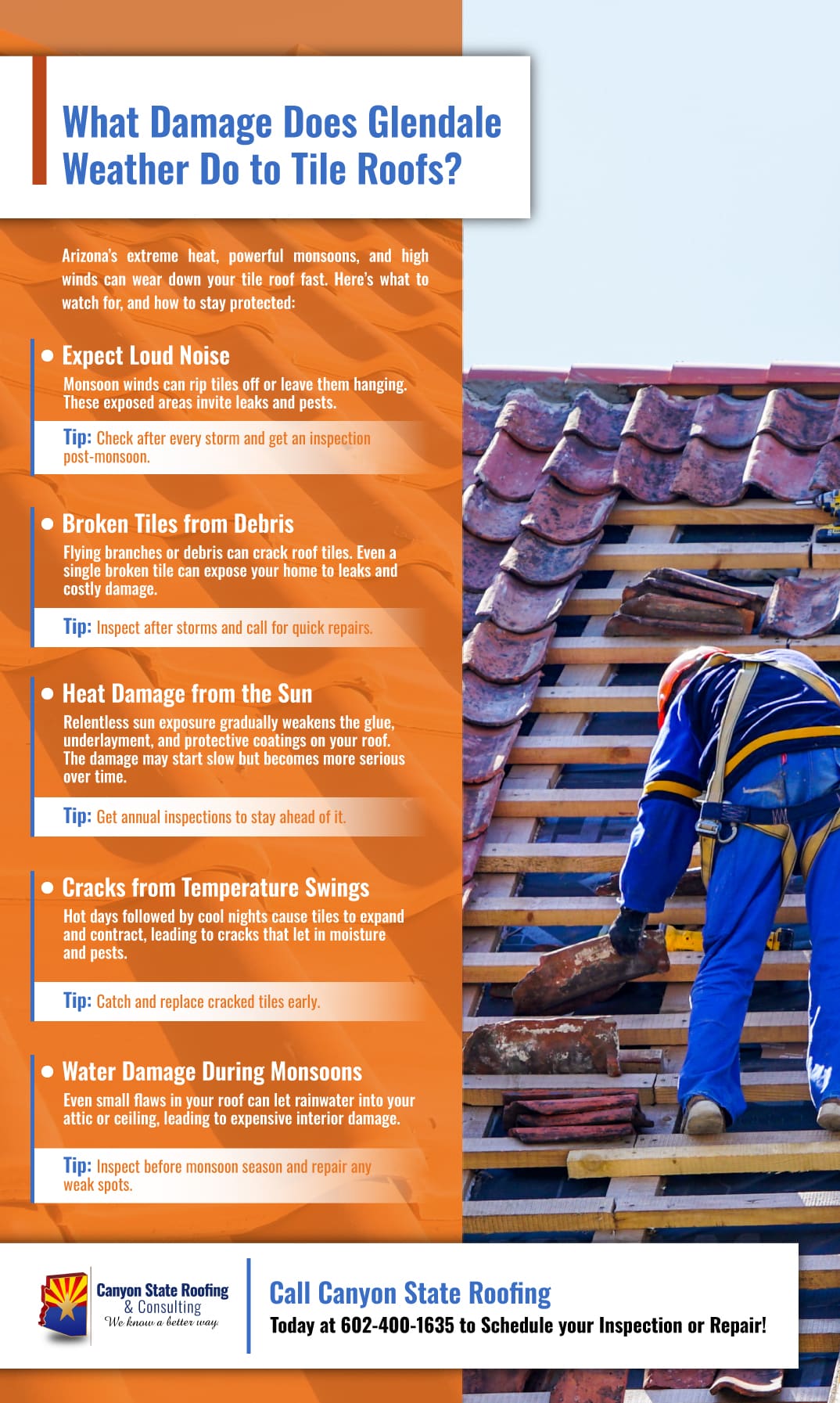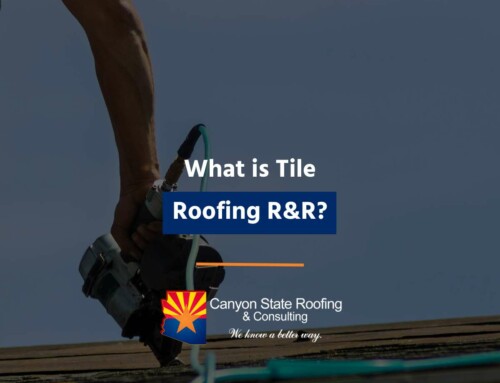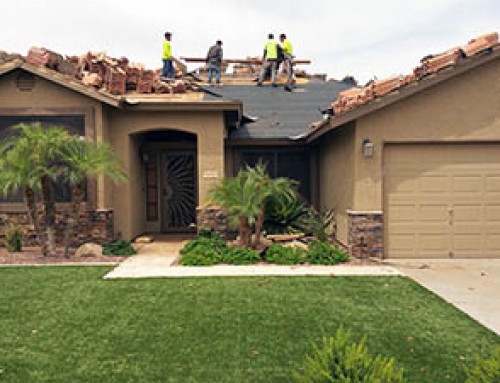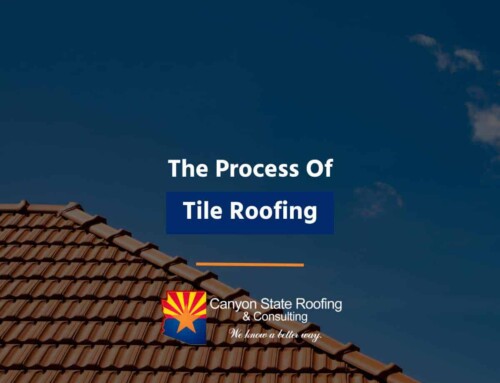Table Of Contents
What Damage Does The Glendale Weather Do To Tile Roofs?
What Monsoons, Sun & Wind Really Do To Tile Roofs In Glendale
Glendale is part of the Phoenix Valley Area, and as such, it experiences a lot of weather extremes. To start, the temperatures are pretty intense nearly the whole year round. Temperatures in the 70s and 80s are common through most of the year, but the thermometer often registers in the triple digits during the summer. Then the area gets hit by a series of monsoons every year, which bring with them heavy rains and intense winds. Altogether, the local weather can take a serious toll on a tile roof.
Knowing what kind of damage the weather can bring can help you know how to better protect your tile roof. Here’s the kind of damage that the Glendale weather can cause to your tile roof:
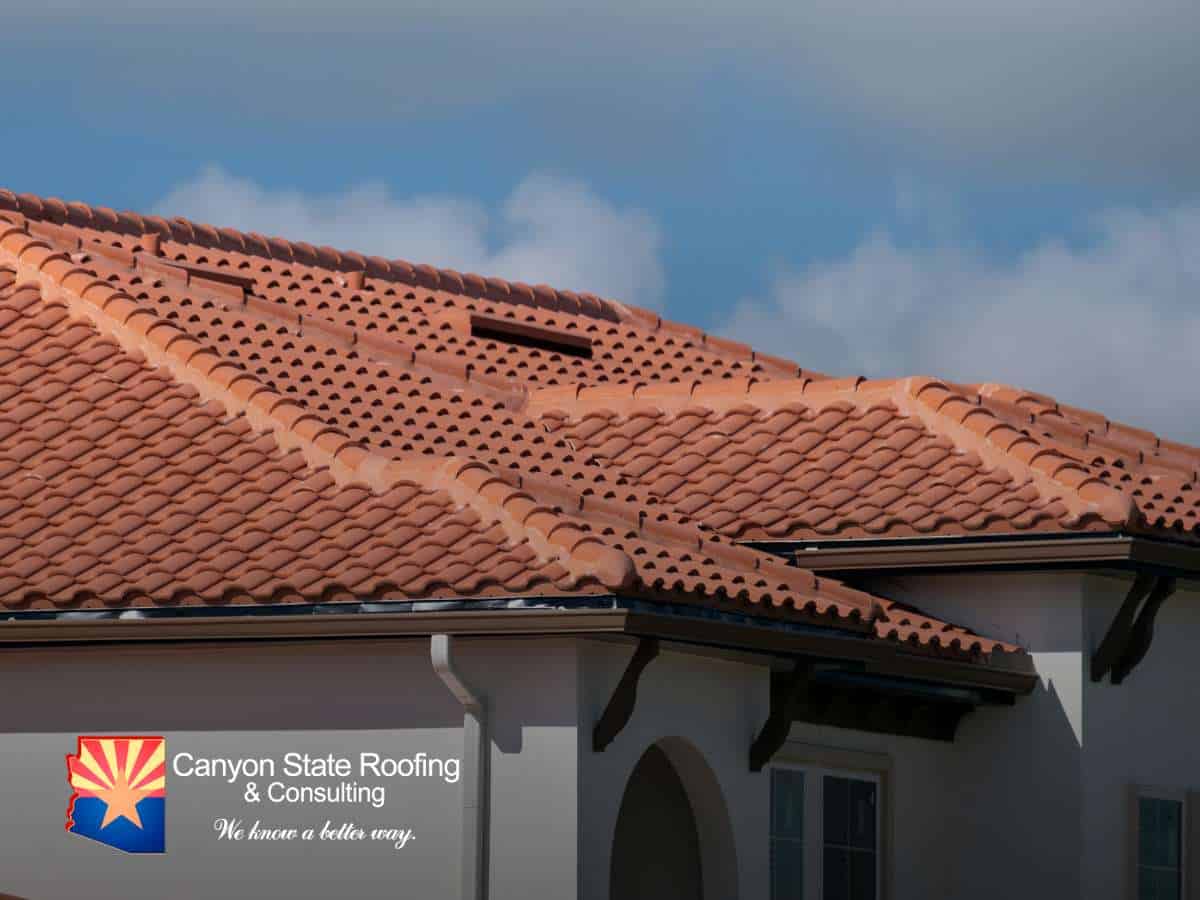
How To Deal With Missing Or Loose Tiles After Monsoons In Glendale
Monsoons bring with them intense winds that can pick up lawn furniture and relocate it a few houses over. These are winds that can knock down branches and even bring down some trees, depending on how strong the winds and how weak the trees. These winds can also blow some of the tiles on your roof clean off, or they can dislodge the tiles so that they are loose but not completely detached. Loose or missing tiles leave parts of your roof exposed to pests, water, and other elements that could damage it or penetrate to damage your home.
Check your roof for signs of missing tiles after each monsoon. If you see an area that looks suspect, get a roofer to do a formal inspection for loose tiles. Always schedule an inspection after the season ends to ensure that there is no lingering damage to your roof.
What To Do If Your Roof Tiles Break: Common Causes & Fixes
The heavy winds from monsoons won’t just knock your tiles loose; they can also knock down tree branches or pick up debris from your yard or your neighbor’s yard and send it flying. Any of those things can be sent crashing down on your roof, breaking one or more tiles and leaving your roof exposed to damaging elements.
Again, always check your roof after a big storm comes through. If you see any broken tiles, call your roofer right away for an emergency repair. Even a single broken tile can allow enough penetration of water and other elements to seriously damage your roof or your home in a short time. The sooner you get the tile replaced, the better. If you’re looking to get professional roof repair, check out this site.
How Intense Sun In Glendale Deteriorates Roof Materials Over Time
When it’s not raining in Glendale, the sun is usually beating down. The temperatures can reach brutal levels in the summer, and the heat will do more than send you running for a pool. Your roof is exposed to that sun for the majority of each day, and it has nowhere to escape. That intense heat can start to break down roofing materials, such as the glue used to attach materials, the underlayment under your tiles, and more. Over time, even the best materials will start to degrade under the intense sun.
Annual roofing inspections will help you stay on top of damage from the heat. This is damage that will appear gradually over time, so no sudden change will occur. Working with an experienced roofer on a consistent basis will give you the best chance of spotting problems as early as possible.
Preventing Cracked Tiles In Glendale’s Extreme Temperature Fluctuations
Sometimes, the temperatures can fluctuate wildly in Glendale. The heat may be intense during the day, and then the temperatures may drop significantly at night. Such changes may help you sleep more cozily at night, but they can wreak havoc on your tile roof. The extreme temperature changes can cause your tiles to expand and contract quickly, which can lead to cracks. Over time, those cracks will allow water or pests to penetrate, which can damage your roof.
Again, a consistent schedule of roofing inspections is what you need to prevent further damage if your tiles become cracked. Your roofer will spot these cracked tiles quickly and will replace them, ensuring that your roof and your home are protected.
How Glendale’s Monsoons Lead To Extensive Water Damage On Tile Roofs
Age and the wear and tear that your tile roof experiences over time can leave it vulnerable with cracks, looseness, and other issues. Even minor weaknesses in your tile can lead to big problems. When the monsoon season hits, you’ll be dealing with a deluge of rain at a minimum. With so much rain pounding down on your roof, a significant amount of water can penetrate the weaknesses in your tile and cause widespread damage in your attic, ceiling, or other areas of your home.
Many people like to schedule a roofing inspection before the monsoon season hits so they can fix any issues that are present before the flood of rain comes down.
Knowing what kind of damage the Glendale weather can cause to your roof can help you better prepare for the seasonal threats or to treat them. Always work with a local roofer who understands the unique issues that the local weather poses for your roof and can adequately inspect for them or repair them.
Warning Signs You Shouldn’t Ignore To Spot Roof Damage Early
Spot Roof Damage Early: Signs You Should Never Ignore
Early detection is your best defense against costly roof repairs. Even small signs of trouble can point to underlying damage that, if ignored, may compromise your home’s structure. Stay alert for these red flags:
- Loose or missing tiles after storms
High winds can dislodge tiles, exposing the underlayment and allowing water or pests to enter. - Cracked or chipped tiles from temperature shifts
Rapid changes between hot days and cool nights can stress tiles, causing them to fracture and weaken. - Debris buildup on the roof or in gutters
Accumulated leaves and branches can trap moisture and block drainage, increasing the risk of water damage. - Water stains on ceilings or attic beams
Brown or yellow discoloration inside your home is often a sign that moisture is getting through the roof. - Peeling paint or bubbling drywall
Moisture intrusion doesn’t just affect the roof — it can wreak havoc on your home’s interior finishes. - Musty odors in attic spaces
A persistent musty smell may signal hidden leaks and potential mold growth. - Sagging or darkened areas on your roof
Uneven or stained sections can indicate serious structural damage or long-term water exposure.
To avoid major repairs and protect your home, schedule regular inspections with a trusted local roofer. A proactive approach ensures that minor issues are addressed before they become major — saving you time, stress, and money in the long run.
Why Prompt Roof Repairs Are Crucial to Prevent Bigger Issues
Delaying a roof repair can lead to serious problems. Here’s why you should act fast:
- Emergency repairs cost significantly more than proactive maintenance: waiting often results in larger, more urgent repairs, which means higher costs and more disruption.
- Water infiltration can cause mold growth and structural damage: leaks not only harm your roof but can spread moisture to walls and framing, compromising your home’s structure.
- Minor cracks or loose tiles can lead to major leaks: even small gaps allow water inside, causing hidden damage over time.
Don’t wait. Schedule repairs now to prevent larger, more expensive issues later.
Practical Tips To Prevent Wind Damage
You can’t stop the wind, but you can protect your roof with these steps:
- Trim trees and remove dead branches near your home: prevent falling limbs from damaging your roof during storms.
- Secure outdoor furniture before monsoon season: loose items can become dangerous projectiles in high winds.
- Clear gutters to prevent water buildup during storms: blocked gutters can cause water to back up and seep under your roof.
- Inspect flashing and replace damaged materials: well-maintained flashing prevents wind-driven rain from entering your home.
- Schedule annual maintenance with a trusted roofing company: regular inspections help ensure your roof is ready to withstand Glendale’s powerful winds.
Proper preparation now will help your roof hold strong through every season.
Stay Ahead Of The Weather. Call Now For a Free Inspection!
Arizona Roof Rescue is a Glendale roofer that specializes in emergency repair services. We can inspect your roof before the monsoon season to make sure it is ready for the damage that could come, or we can inspect it following a huge storm to make any emergency repairs that might be needed. Contact us today to get a free estimate or to schedule your emergency repair.

Canyon State Roofing
4809 E Thistle Landing Dr #100
Phoenix, AZ 85044
Office: 602-400-1635
Email: [email protected]
Website: www.canyonstateroofs.com


